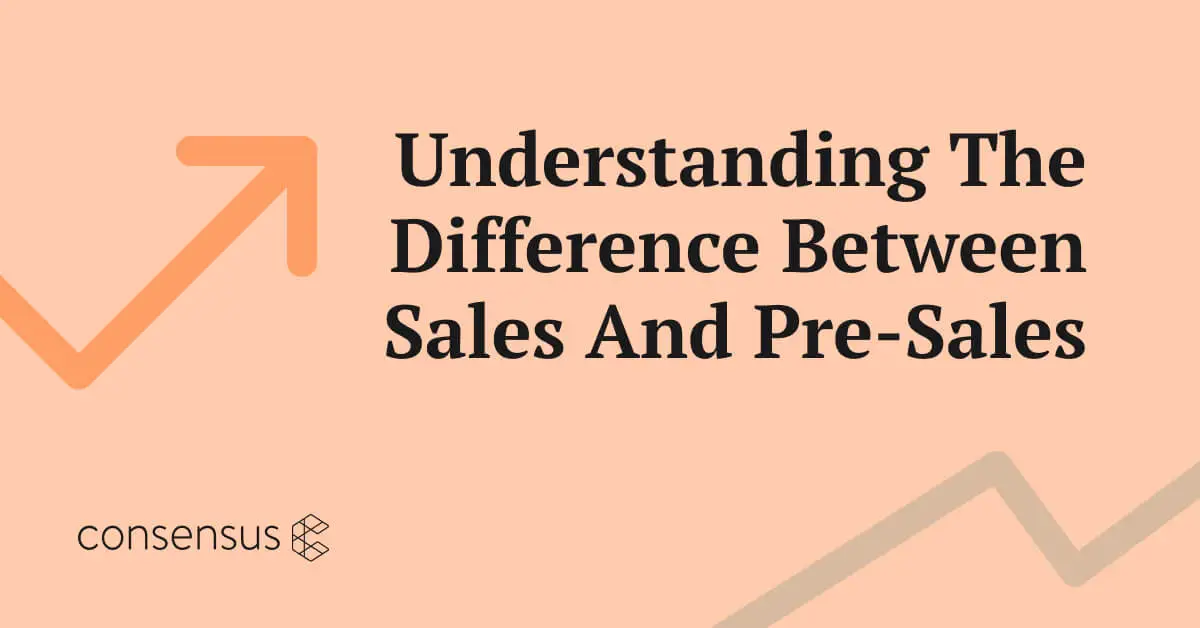What is the importance of pre-sales?
- The role of pre-sales in the B2B world
- Pre-sales engineers
- The role of technology in pre-sales: Interactive demos
Any organization that is engaged in B2B sales needs to consider how the B2B pre-sales and sales stages will coordinate. Having access to state-of-the-art sales enablement tools isn’t enough. In order to implement and support an effective sales cycle, businesses must understand the unique differences between these two stages.
Customers have certain expectations when it comes to the sales process. Before, they usually relied solely on pre-sales for information. This is less the case today as decision-makers are more informed.
However, this doesn’t make pre-sales unnecessary. Instead, along with proper use of B2B sales tools, it is a crucial step in identifying customer needs.
The role of pre-sales in the B2B world
Pre-sales is an initial stage in the sales cycle. It is an effective tool for many businesses, especially for those that provide technology solutions and other products and services that require some degree of tailoring for customer use.
Pre-sales is not the same as marketing or other business activities that may be precursors to direct sales activity. It involves efforts that lead to qualifying, closing and renewing a business relationship with a customer. The closer you are to your clients and customers, the better your business relationships will be in the future.
B2B pre-sales activities help companies develop newer, stronger business relationships and are often instrumental in retaining existing customers as well. They differ from sales in several ways. The main difference is that pre-sales is technical, while sales is emotive.
Pre-sales determines what is needed and then explains how a product or service can solve a problem. Sales presents solutions as well. However, the sales approach is more closely tied with building relationships, developing trust, and exhibiting closing skill.
Pre-sales engineers
In technical sales, pre-sales engineers handle assessments aimed at qualifying and identifying how a solutions provider can solve problems for a B2B customer. The role expands beyond that of prequalifying leads. However, pre-sales engineers also engage in a detailed analysis of the current solutions while also finding ways to create new ones from all of the information that is provided to them.
Pre-sales engineers are often called upon to provide substance in a sales meeting, demonstration or request for proposals. A sales role doesn’t necessarily require the same level of thorough knowledge that pre-sales requires, although the most successful sales reps should also have at least the same depth of knowledge that pre-sales personnel have—just in case the clients are very particular and inquisitive about the product they want to buy.
Successful B2B pre-sales requires several key steps. The overall process is geared toward consultative sales. Pre-sales activities should involve working with the customer to identify pain points. It is a collaboration between the customers and the sales team. It is basically knowledge sharing for the benefit of both parties. It is highly technical and always will be because every little thing must be scrutinized and analyzed for an effective solution to be implemented.
For many companies, participating in this sort of hands-on, expert-generated solution development is crucial to a completed sale. While pre-sales is important from a customer’s perspective, some innovations may be chipping away at pre-sales’ dominance in providing certain components of the pre-sales process, such as demos.
The role of technology in pre-sales: Interactive demos
Some say B2B pre-sales engineers are underappreciated in the B2B sales process. From a customer perspective, however, there is great value in a pre-sales engineer’s ability to provide objective information and identify areas in which a product or service can create value for a customer.
Today, technology is creating more opportunities in the pre-sales space. One area in which sellers and buyers in a B2B transaction benefit from technology is the advent of interactive demos. Rather than have a pre-sales engineer spend time analyzing and identifying customer needs, an interactive demo would let the customers identify their problems themselves slowly narrowing down to a possible specific pain point that causes everything.
With an interactive demonstration, the information gathering stage is streamlined, with personalization that creates a more relevant, more meaningful delivery of information to decision makers.
Key Takeaway
Consensus is a SaaS application that enables interactive demo automation to help sellers discover and engage the entire buying group through analytics and tracking what content is viewed. The interactive demos mean that the customer more intuitively chooses which components of a product are most important to them without the need for a sales rep to be physically present.
Through Consensus, pre-sales becomes sharper, better targeted and more likely to result in continued business relationships. This sales enablement tool is efficient for both pre-sales and sales. Pre-sales practices help businesses identify problems and match potential customers with solutions. Contact Consensus to see what role interactive demos can play in your pre-sales process.
